SELLING THE WILD COAST
Privatising paradise — questions emerge over exclusive Wild Coast lodges
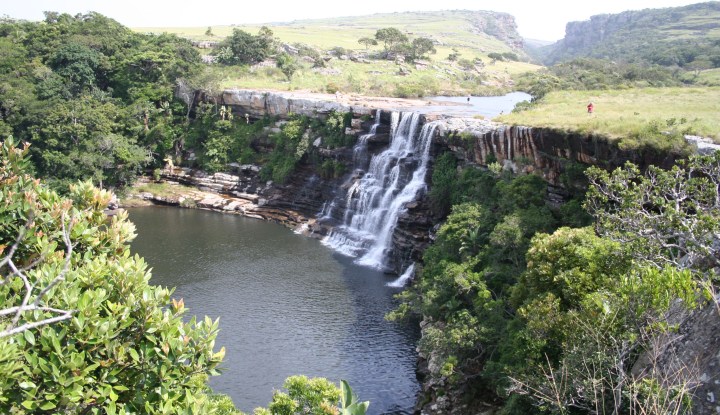
The Mkambati Nature Reserve, east of Lusikisiki on the Pondoland Wild Coast, is one of South Africa’s hidden gems. Now plans to develop a five-star lodge resort in the reserve have raised concerns about the likely exclusion of all but the rich from large sections of Mkambati.
The 280km-long Wild Coast is one of the most isolated and visually spectacular stretches of South Africa’s coastline — a place where you are more likely to encounter a handful of Nguni cattle chewing the cud on secluded beaches rather than a forest of beach umbrellas and sun-tanned tourists.
It is also one of the few places in the world where you can see waterfalls tumbling directly into an expansive blue ocean that is sometimes churned up by towering waves and fast-moving currents that have made it a burial ground for dozens of shipwrecks over the past five centuries.
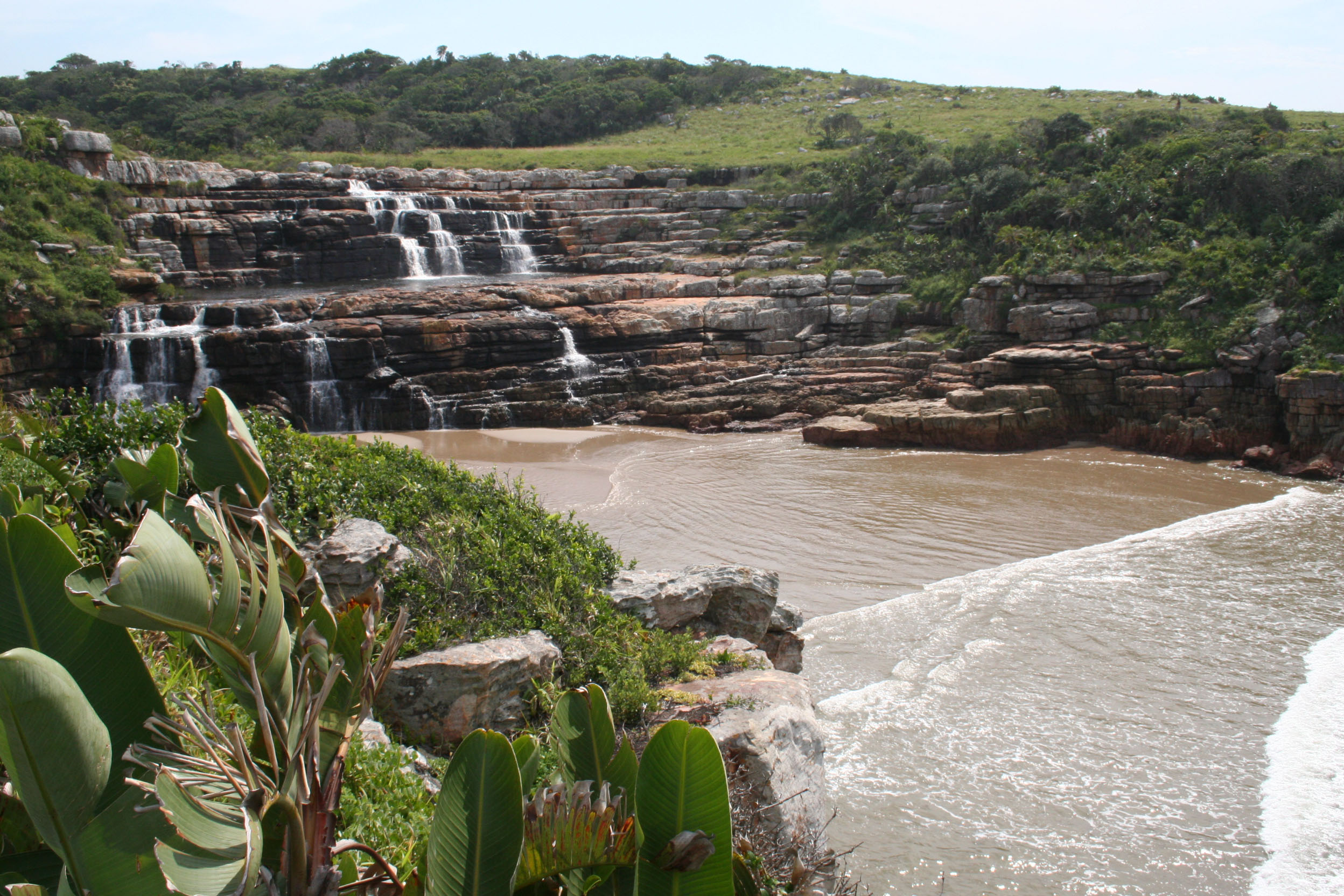
At the mouth of the Mkambati River, freshwater plunges directly into the sea.
This coastline derives its name as much from wild seas as it does from the isolation and lack of modern infrastructure that has allowed it to remain largely unblemished by the rows of holiday apartments and shopping malls that blight so many other stretches of the coast.
Little wonder then that businessmen like Colin Bell have been enchanted by the Wild Coast and the opportunity to establish a more sensitive form of tourism-based development that blends into and protects the very environments that makes them so special.
Bell is the Cape Town-based co-founder of the Wilderness Safaris group, which has established dozens of exclusive, low-impact safari camps across Africa.
After completing an economics degree at Wits University in the late 1970s, Bell started off as a safari guide before setting up Wilderness Safaris. He sold his shares in 2005 to set up a new venture, Great Plains Conservation, and later co-founded the Natural Selection safari group which donates a portion of profits to conservation projects.
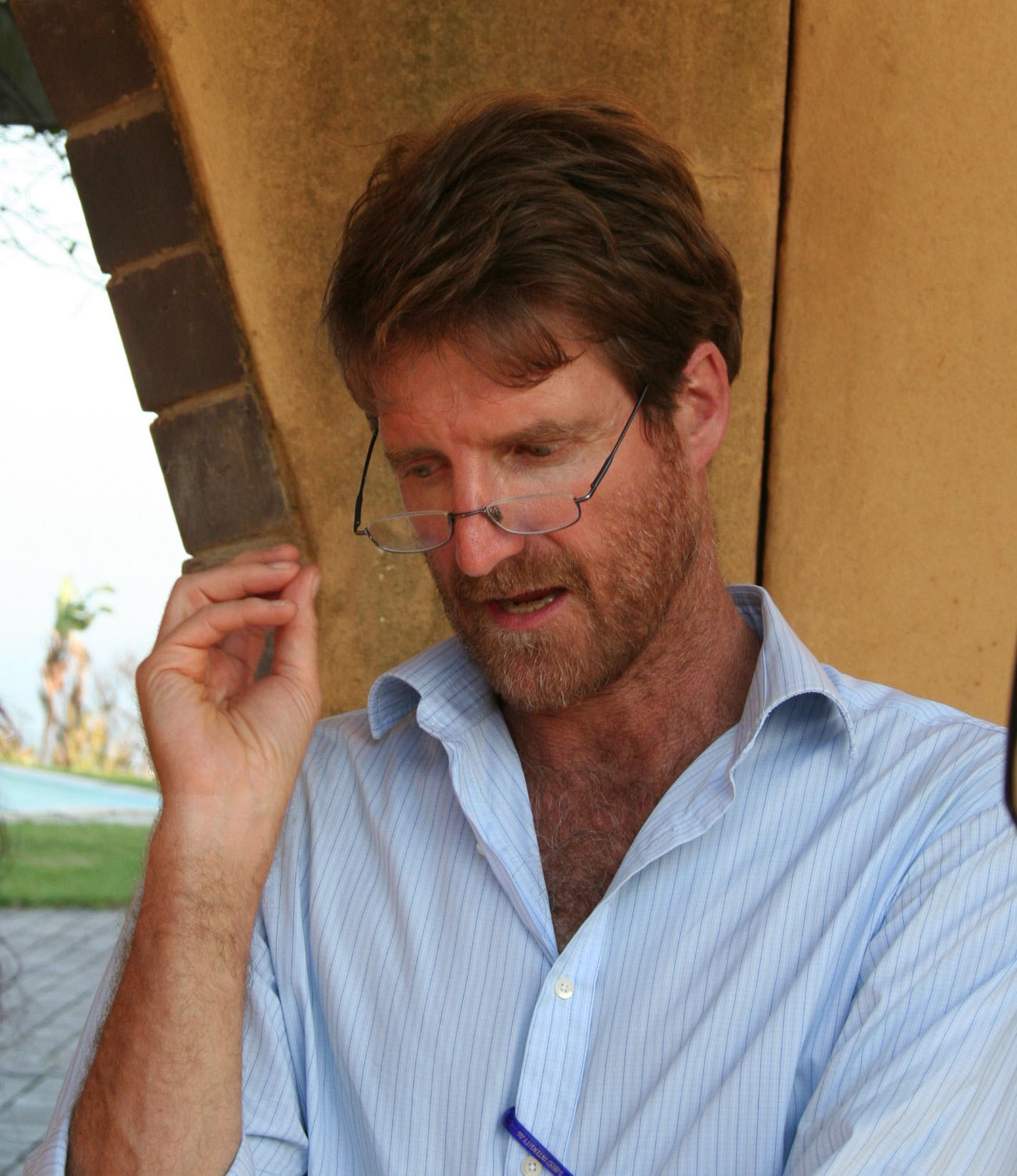
Exclusive lodge developer Colin Bell.
In the introduction to Africa’s Finest, a book he co-authored with David Bristow in 2003, Bell and his colleague remark that unmanaged and insensitive tourism can impact negatively on the environment.
“Yet if safari tourism is carefully structured and managed it can be the prime industry that ensures the preservation of the planet’s remaining wilderness.”
For well over a decade, Bell has also been bidding to develop a high-end tourist resort in the Mkambati Nature Reserve, a 7,700ha stretch of coastline and hinterland that is recognised as one of the most priceless natural jewels of the Wild Coast.
Located in the heart of the Pondoland Centre of Plant Endemism, Mkambati is a global hotspot of botanical diversity and a popular holiday getaway for nature lovers, hikers, birders, cyclists and anglers.
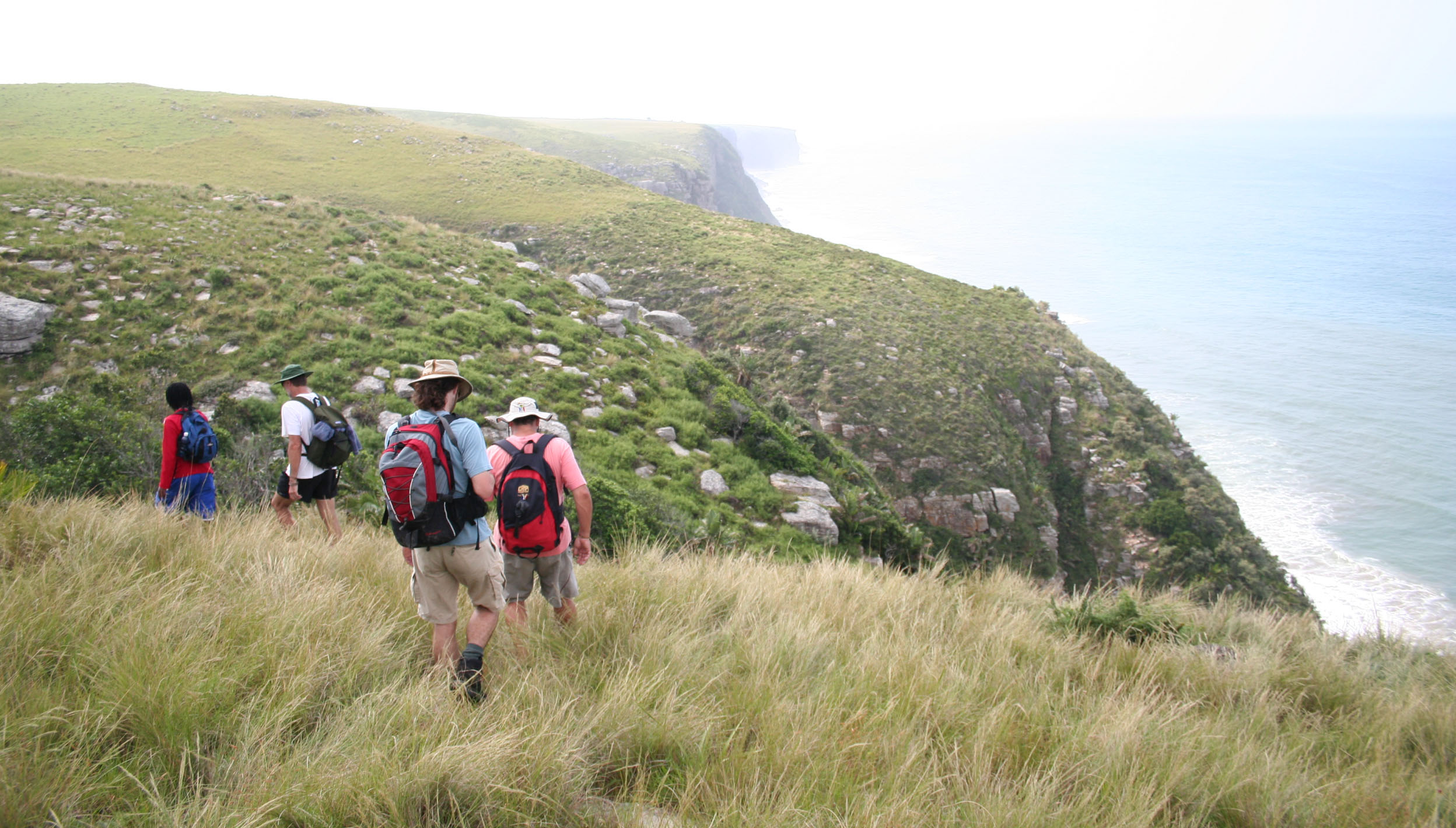
Hikers traverse steep cliffs above the Wild Coast.
Mkambati also used to be a leper colony.
Had it not been designated and fenced off as such in the 1920s, who knows what shape the landscape would be in today?
But 50 years later, following the development of new drug treatments, the leper colony was closed. The land was declared a nature reserve in 1977 and developed as a private hunting resort.
Plans to import exotic species such as bear and grouse and to build luxury hotels never came to fruition and by early 1980 the scheme was abandoned. The reserve was then handed back to the nature conservation division of the former Transkei Department of Agriculture and Forestry.
But conflicts over land use and ownership led to a restitution claim by seven adjoining communities and in 2004 ownership was settled in favour of the Mkambati Land Trust, on condition that it remained a nature reserve in perpetuity.
It was around this time that the provincial government put out a tender to redevelop the generally run-down tourism facilities at Mkambati, sparking interest from Wilderness Safaris and from a second company, The Mantis Collection.
Following an environmental impact assessment (EIA) by consultant Dr Mike Cohen in 2004, Wilderness and Mantis were given permission to jointly redevelop the reserve for tourism, each with their own concession areas.
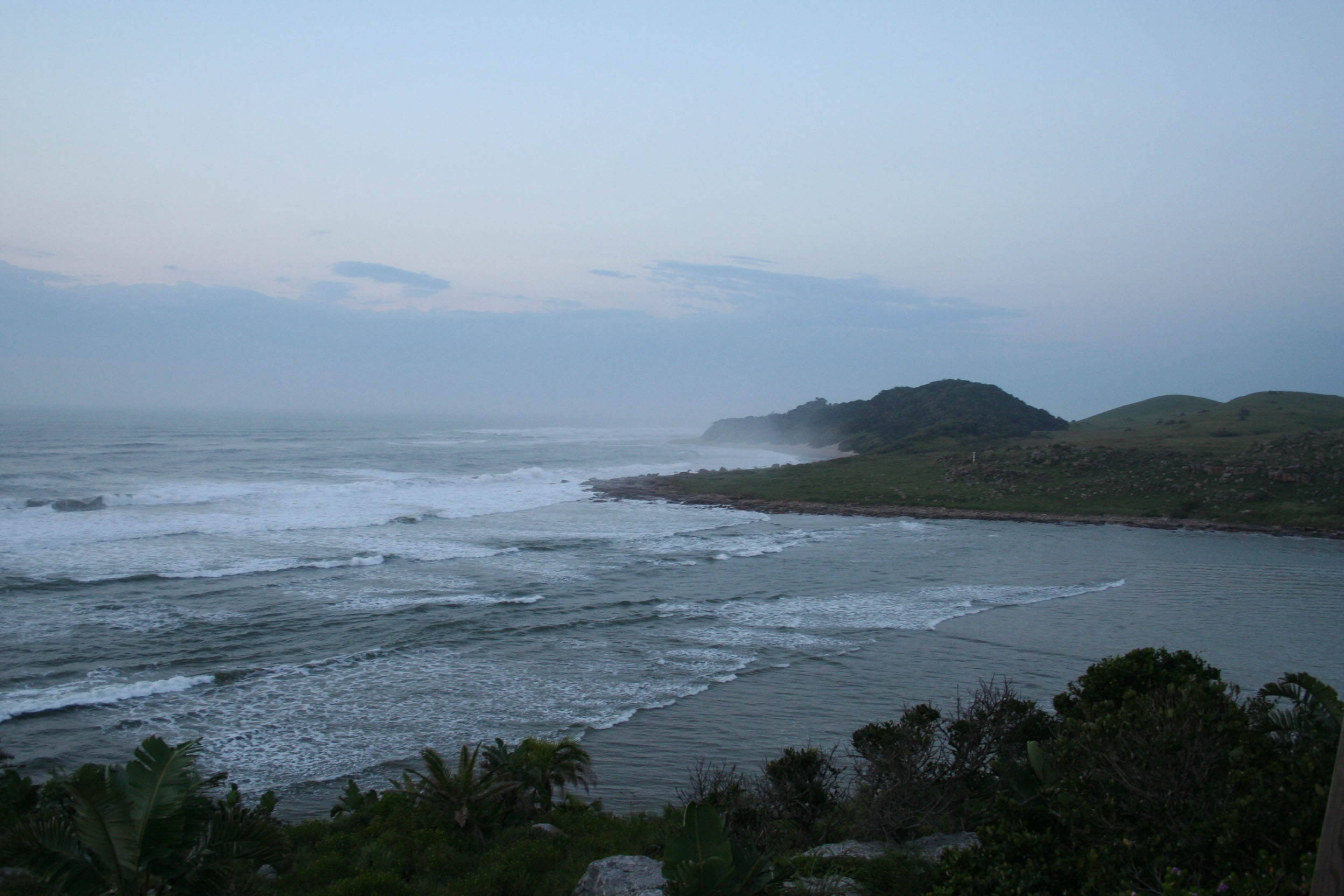
Numerous ships have come to grief off the Wild Coast, including the cruise liner Oceanos (1993), the Waratah (1909) and the Sao Bento (1554).
When Mantis pulled out, a fresh EIA process was launched by development consultants Terreco, on behalf of Bell’s new company Mkambati Matters.
But only five people attended a public meeting to discuss the plan, with Terreco attributing poor attendance to a combination of bad weather and the fact that it was held a few days after the death of former President Nelson Mandela, during a 10-day period of mourning.
The revised development was formally approved by the Eastern Cape provincial department of environmental affairs in April 2015 — and in the absence of belated legal objections, Bell’s company has been authorised to go ahead in partnership with the Mkambati Land Trust and Eastern Cape Parks and Tourism Agency. He will pay an annual lease fee of R150,000 for the concession.
However, after news of the authorisation emerged, several parties expressed concern about being locked out from visiting Mkambati because Bell’s company appears to have been granted near-exclusive control over more than half the reserve. There are also unresolved questions on whether ordinary visitors will be able to access affordable accommodation in the remaining southern sector of the reserve.
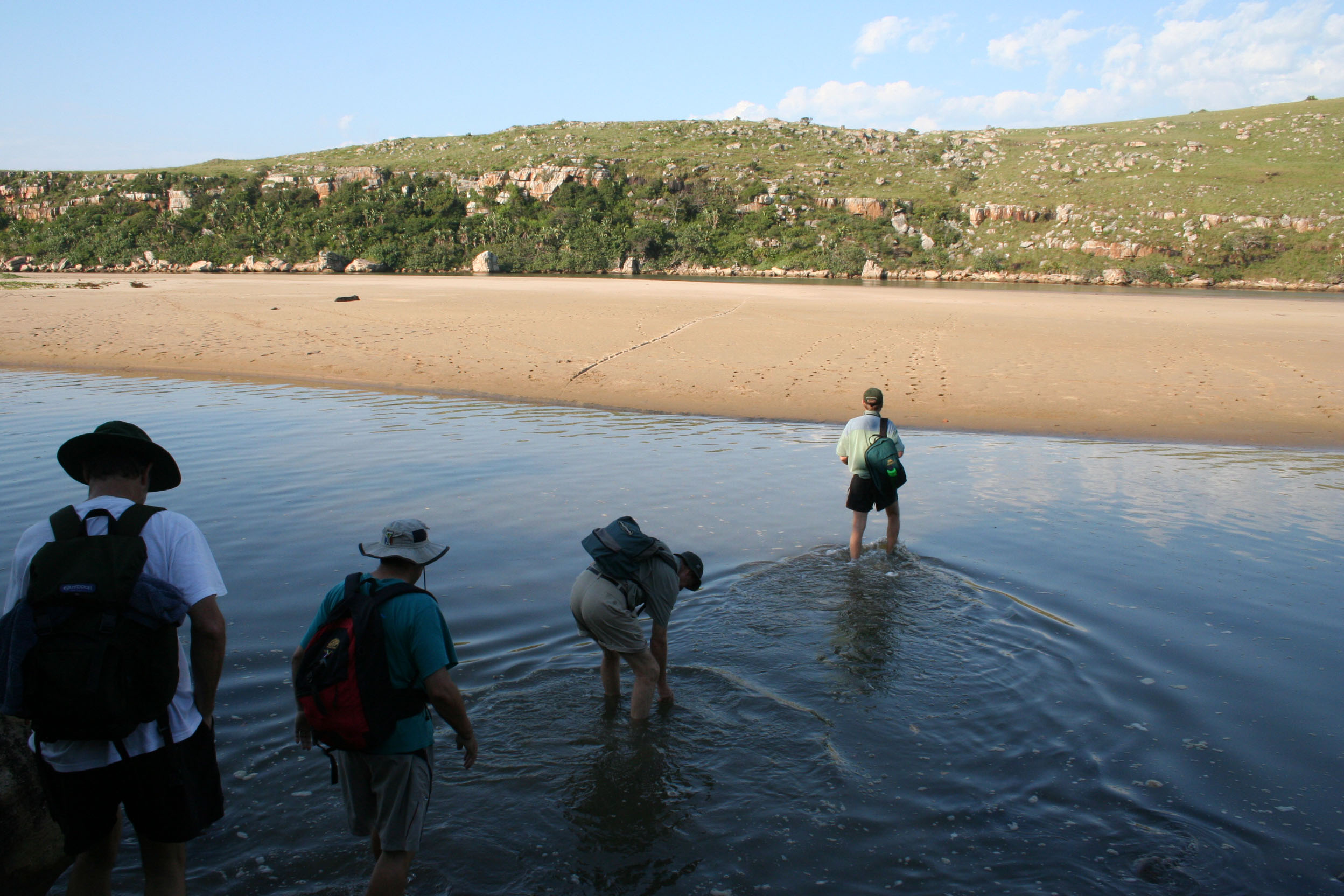
Hikers cross a section of the Mtentu River to reach the northern section of Mkambati Nature Reserve.
According to the most recent EIA:
“The Northern Concession will be exclusively utilised by Mkambati Matters for the guests at the Gwe Gwe and North Beach resorts. There will be no self-drive vehicles permitted within the reserve. All guests and day visitors will be required to leave their vehicles at a designated secure area at the main gate and transportation to the accommodation and/or for day game drives will be provided.
“Day visitors and other organisations that utilise this section of the reserve (eg Amadiba Horse Trails) will be subject to entrance fees.”
There are also indications that in order to maintain exclusivity, Mkambati Matters wishes to restrict public access to certain areas, including the spectacular Mkambati waterfalls.
Bell’s environmental consultants touch briefly on such concerns, commenting that:
“Some disbenefits may occur due to the exclusivity of the reserve for guests at the resorts and the possible implications for visitors who are now excluded by five-star costs and/or the restriction of use of the coastline by other leisure operators (for example, horse trail, hiking and mountain biking).”
This has raised the ire of several visitors, including senior marine scientist Dr Bruce Mann and his wife Dr Judy Mann, the conservation strategist of the SA Association for Marine Biological Research. Both have raised several concerns, particularly the location of a new lodge at Mosquito Beach.
“While we fully understand the need for development and realise that this process has been stalled for many years, surely the developers could use the existing developmental footprint at Gwegwe/Riverside or at the old reception area?
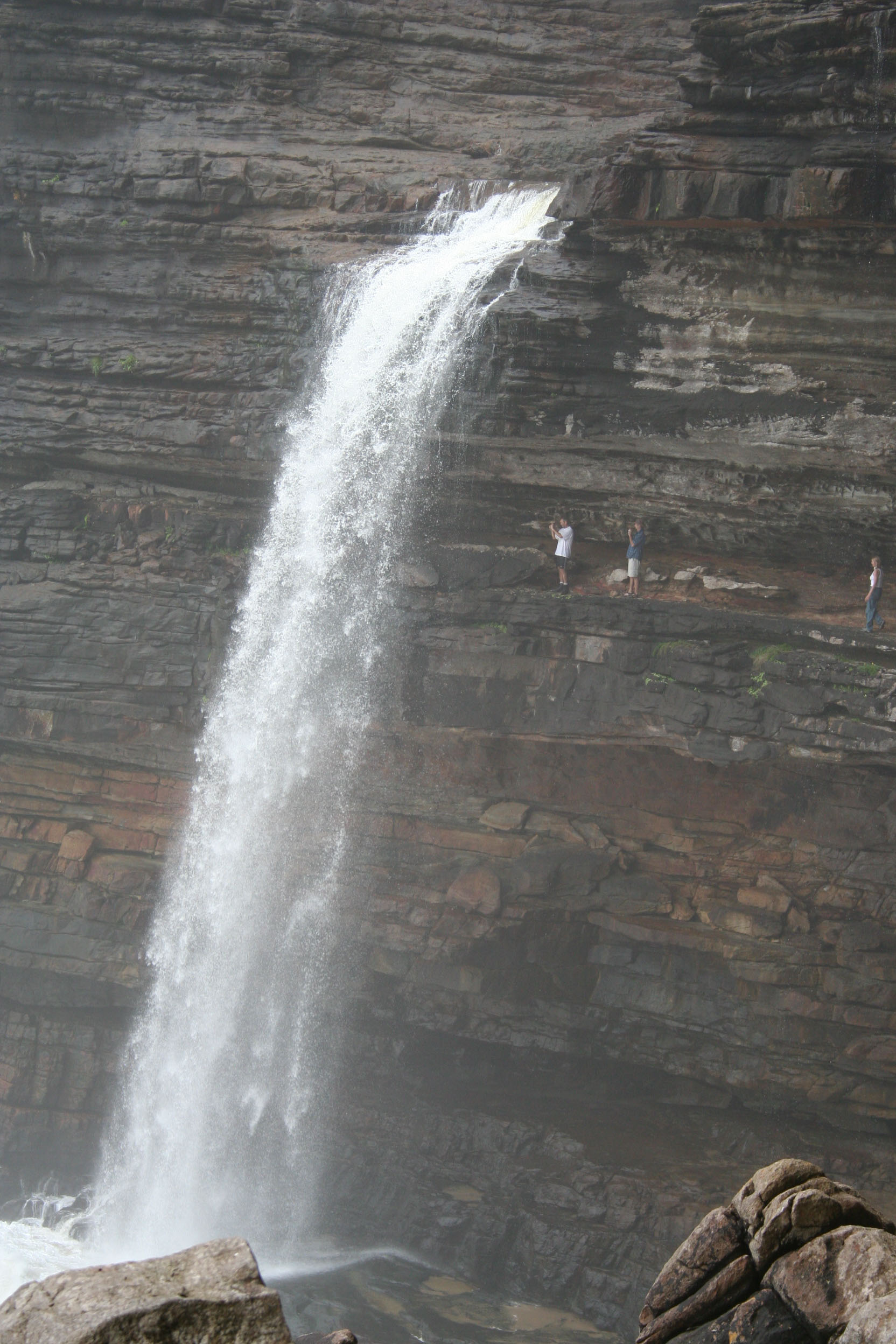
South of the Mkambati Nature Reserve, a hiker is dwarfed by a fountain of water at Waterfall Bluff.
“Putting up a five-star exclusive lodge in the middle of the reserve’s sensitive wilderness area makes no sense to us at all, particularly considering that there is already a lodge only 2km away on the north bank of the Mtentu River and that hikers from this lodge make use of the area south of Mtentu on an almost daily basis.”
The Manns believe that forcing visitors to park their vehicles at the gate and make use of the concession vehicles is unacceptable and would “effectively close the reserve to anyone not staying at the new lodges.”
“The reserve is too large for people to only walk around. Older people would not be able to access many of the sights of the reserve. Most people would not even get to the waterfalls — this is probably the plan but it remains unacceptable.
They believe most people who visit the reserves don’t like relying on other parties to get around.
“This reserve attracts people who want to walk, fish and experience the area — not be driven around, as the ‘wildlife’ is not plentiful or dangerous enough to require a game drive situation.”
On the issue of exclusivity, the Manns say Bell and the Eastern Cape Parks and Tourism Agency have not provided any assurances about access rights and affordable accommodation in the southern section of the reserve.
While they support high-end and exclusive tourism on privately owned land, they fear the concession granted to Bell could set a dangerous precedent for other public reserves.
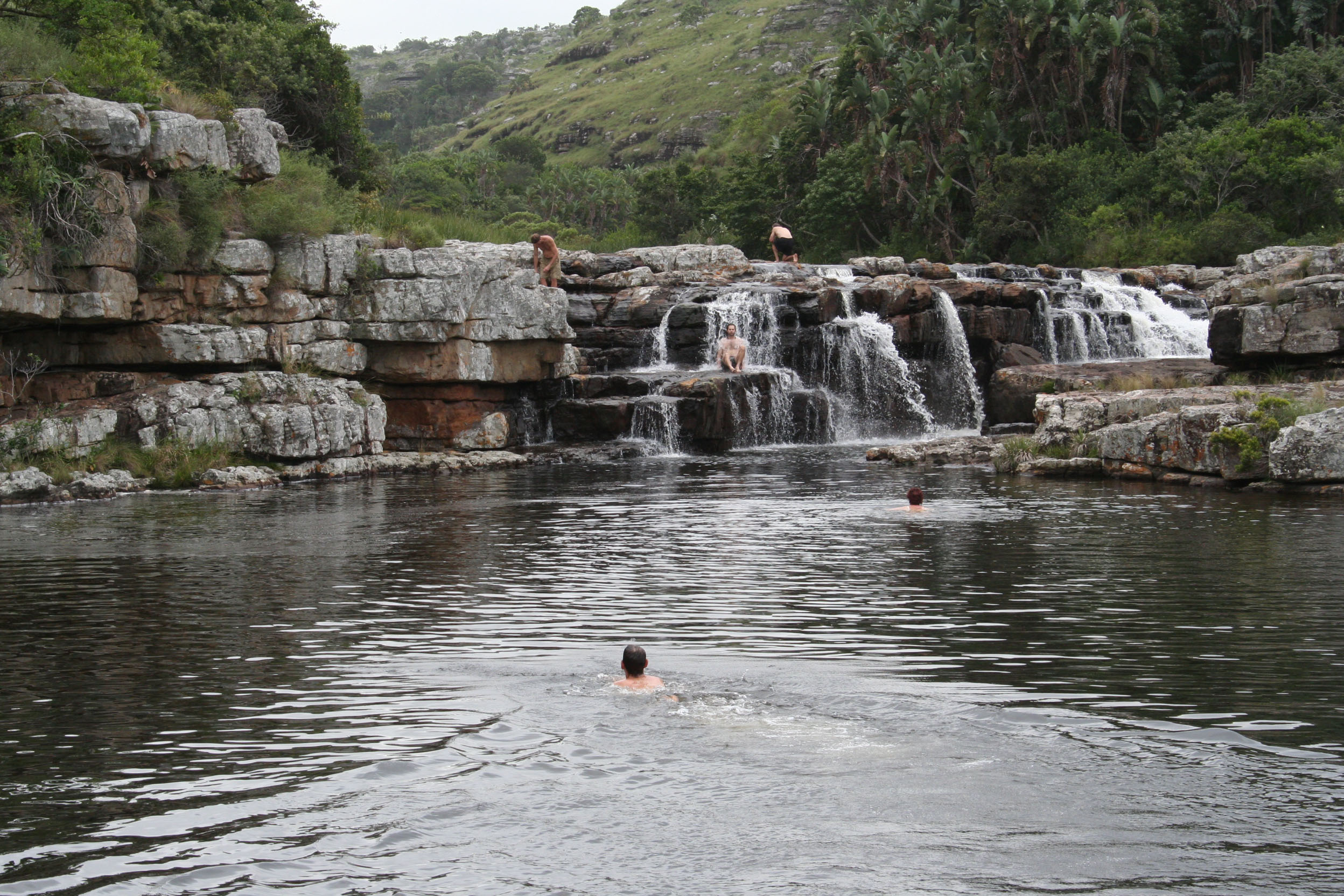
Hikers cool off next to one of nearly 20 waterfalls at Mkambati.
“It goes against the principles of both SA National Parks and most provincial authorities whose mandate is to encourage and enable local people to enjoy our natural heritage. One of the criticisms of our reserves is that they are only for rich tourists — this would exacerbate this perception.”
Paul Dutton, a former coastal strategist at Mkambati, is concerned that new tourist infrastructure will degrade the reserve’s special sense of place, while Anglican Bishop Geoff Davies, founder and patron of the Southern African Faith Communities’ Environment Institute, Safcei, is also opposed to the development of a new lodge in the reserve’s informal “wilderness zone”.
Unlike the Kruger National Park, he said, Mkambati was a very small reserve and deserved the highest level of protection.
And while the proponents have touted exclusive development as the best way to create jobs and financial benefits for the community, some confusion has emerged over the number of jobs this project might create.
In late 2018, a report in the Daily Dispatch newspaper suggested that the 110-bed Mkambati lodges project would cost R200-million to build and permanently employ 120 people from nearby villages.
Yet the EIA documentation prepared by Terreco suggests that the two new camps will provide only 50 permanent jobs.
Hoping to clarify some of these questions, Daily Maverick contacted Bell in early February to solicit his responses. Bell spoke for more than 30 minutes, but on the strict condition that his preliminary comments would remain off the record.
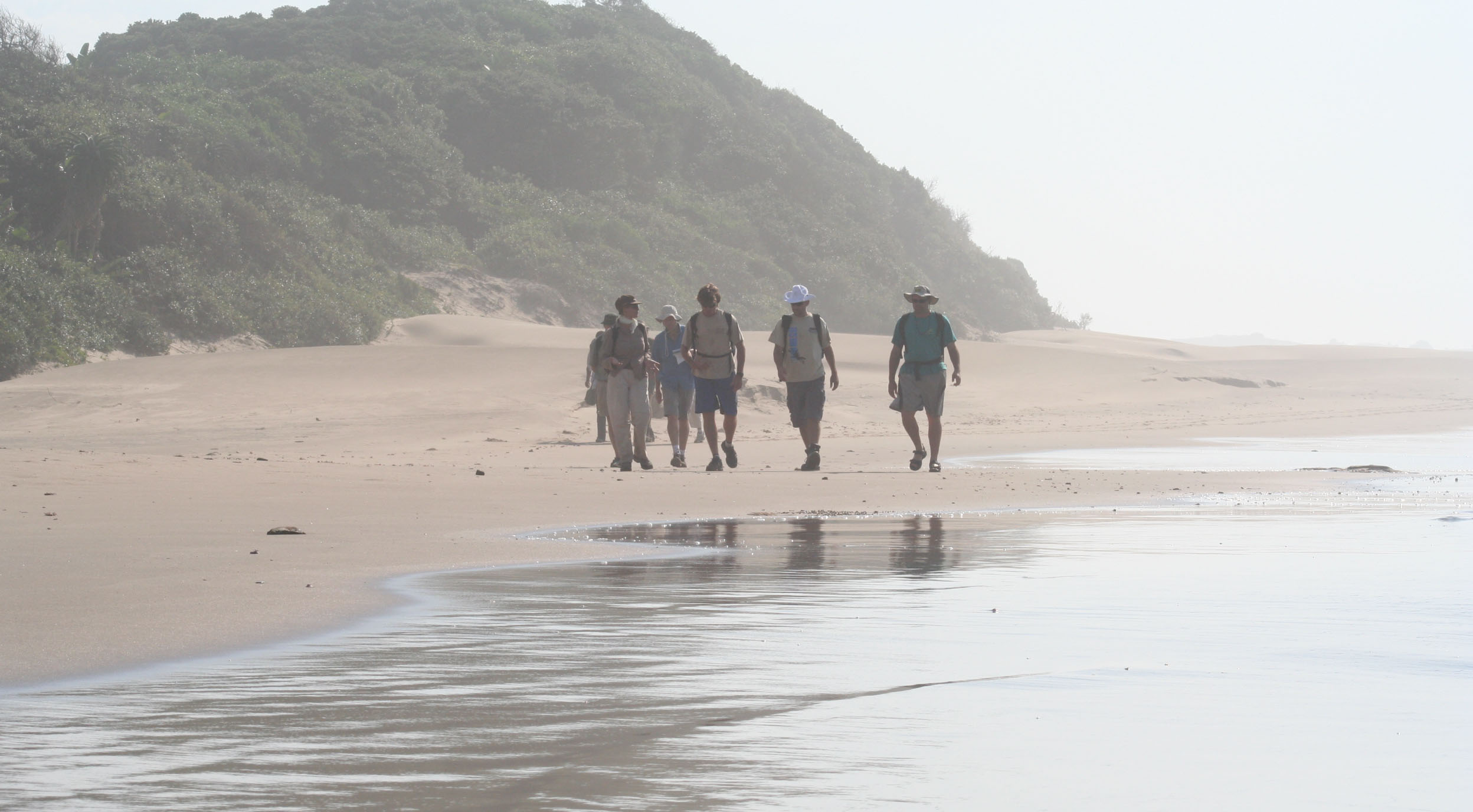
The 280km-long Wild Coast is one of the most country’s most popular beach hiking trails.
At the end of this discussion, Bell did not offer to provide a copy of the relevant EIA documents, but said he was happy to respond formally “once you’ve done what you have to”.
Shortly before this, we had requested a copy of the EIA from Gerry Pienaar of the Eastern Cape Department of Environmental Affairs and Tourism, who responded that he was “not aware of what you may be referring to”.
His response appears odd, considering that (after we finally obtained a copy of the EIA from other sources), Pienaar’s name is second on the distribution list of the EIA report dated 15 April 2015.
We also requested a copy of the EIA report from the environmental consultants Terreco, who referred queries back to Bell, on the basis that releasing this documentation would be at his discretion.
When we expressed surprise at this response, Terreco director Duncan Scott later released a copy of the documents, insisting that he had not been attempting to frustrate a legitimate request.
Finally, after a lengthy run-around obtaining and then studying the voluminous documentation, we went back to Bell on 1 March to offer him another opportunity to comment and respond to written questions.
But Bell told us that he is a busy man and did not think he would be able to respond for another two-and-a-half months.
“I am up to my eyeballs in opening a lodge in six weeks’ time and then we head into Indaba/We Are Africa travel trade show season. I am very happy to answer all your concerns — but only when I come up for air in mid-May. I am not ducking matters — I am just extremely time-deprived right now.”
When we expressed some consternation about further delay, his colleague and Mkambati project director, Keith Stannard, made contact to advise that the development was a private-public partnership tender process which also involved the Mkambati Land Trust and the Eastern Cape Parks and Tourism Agency.
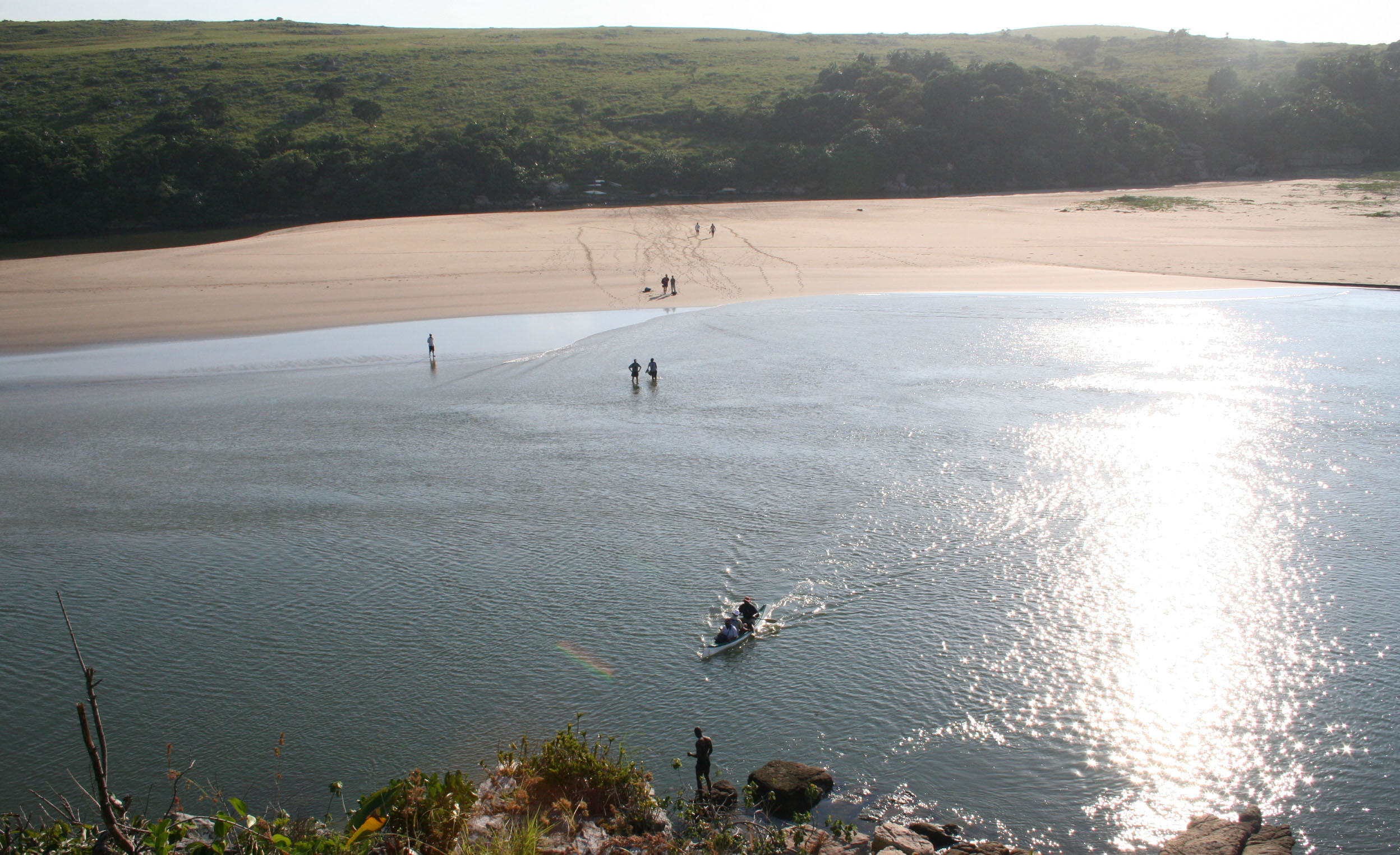
Hikers cross a section of the Mtentu River to reach the northern section of Mkambati Nature Reserve.
“We have an agreement that we engage before responding, particularly when it relates to concerns or queries that have the potential (to) disseminate information that could be inaccurate or misinformed. We would appreciate an opportunity to discuss this and coordinate our response… in the interests of accurate and balanced reporting.
“This project is benchmarking virtuous land restitution processes so lacking in SA and after so many years’ struggle to get off the ground, it deserves more than being subjected to potentially biased negative publicity based on personal concerns of particular stakeholders.”
Another series of delays ensued until 28 March, when Stannard advised that: “Our colleagues have responded and this is being collated. The Eastern Cape Parks and Tourism Agency communications department has asked to review before presenting. I’m hoping this can be concluded next week.”
As yet, no response has arrived. DM
All Images: Tony Carnie
Tony Carnie is a freelance environment writer from Durban. He grew up in Kenya and Zimbabwe before plonking his roots down on the KwaZulu-Natal coast. After nearly three decades at The Mercury and Independent Media, writing about toxic air, polluted rivers or wilderness conservation, he packed up a trailer-load of archived paper and set up a new office at home. Mentors include Peter Montague, founder of Rachels Environment and Health-e News.



 Become an Insider
Become an Insider